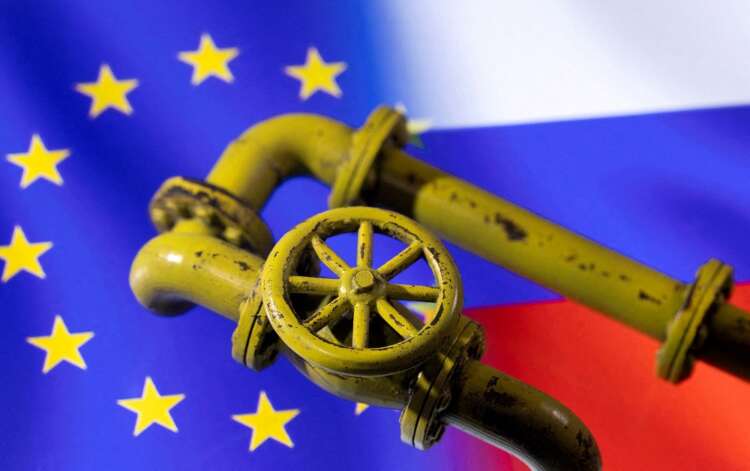Top Stories
What is the EU’s stance on Russia’s roubles gas payment demand?
Published : 3 years ago, on
By Kate Abnett
BRUSSELS (Reuters) – Russia halted gas supplies to Bulgaria and Poland on Wednesday for rejecting its demand that European buyers start paying for Russian gas in roubles.
The European Commission has said countries should not pay in roubles, and that complying with Russia’s request could breach European Union sanctions against Moscow over its invasion of Ukraine.
However, Brussels has also outlined options that may allow EU buyers to continue paying for Russian gas without breaching sanctions.
Here is a look at the issue.
WHAT DOES RUSSIA’S DECREE SAY?
In March, Moscow issued a decree proposing that energy buyers open accounts at Gazprombank to make payments in euros or dollars, which would then be converted to roubles, and paid to gas supplier Gazprom.
The decree said Gazprombank would open special “K” type accounts for gas payments from foreign buyers. An EU company would transfer foreign currency into one such account, and then a Russian bank would convert the payment to roubles and transfer the roubles to another “K” account belonging to Gazprom.
The decree said the buyer’s obligation would be considered fulfilled only when the roubles arrived in Gazprom’s account.
WHY COULD RUSSIA’S PROPOSAL BREACH EU SANCTIONS?
The European Commission has said EU companies should continue to pay the currency agreed in their contracts with Gazprom – 97% of which are in euros or dollars.
The Commission sent an advisory document to EU countries last week, which said Russia’s proposed payment system could breach EU sanctions – even if EU buyers send euros to Gazprombank. That is because under Russia’s decree the EU buyer’s contractual obligation would not be considered complete until the euros are converted into roubles, the Commission said.
That would put the effective completion of the purchase into the hands of the Russian authorities and involve Russia’s central bank, which is subject to EU sanctions.
“As the conversion process may take an undefined amount of time, during which time the foreign currency is entirely in the hands of the Russian authorities including the central bank, it may even be considered as a loan granted by EU companies,” the Commission said.
IS THERE A SOLUTION?
Possibly. Moscow’s decree does not necessarily prevent a payment process that would comply with EU sanctions, the Commission said.
To avoid breaching sanctions, companies would need to seek additional conditions on the transactions, to confirm that their contractual obligations are complete once they deposit euros with Gazprombank – as opposed to after Russia has converted the payment into roubles.
“EU companies can ask their Russian counterparts to fulfil their contractual obligations in the same manner as before the adoption of the decree, i.e. by depositing the due amount in euros or dollars,” the Commission said in its advisory document, which is not legally binding.
However, the procedure for securing exemptions from the requirements of the decree is not yet clear, it said.
Another option could be for EU companies themselves to declare that they consider their contractual obligations to be completed when they deposit euros or dollars with Gazprombank.
“It would be advisable to seek confirmation from the Russian side that this procedure is possible under the rules of the decree,” the Commission said.
EU companies are allowed to open accounts with Gazprombank and engage with the bank to attempt to seek a solution. Gazprombank is not subject to EU sanctions.
(Reporting by Kate Abnett; editing by Philip Blenkinsop and David Evans)

-
Finance3 days ago
Phantom Wallet Integrates Sui
-
Banking4 days ago
Global billionaire wealth leaps, fueled by US gains, UBS says
-
Finance3 days ago
UK firms flag over $1.4 billion in labour costs from increase in national insurance, wages
-
Banking4 days ago
Italy and African Development Bank sign $420 million co-financing deal







